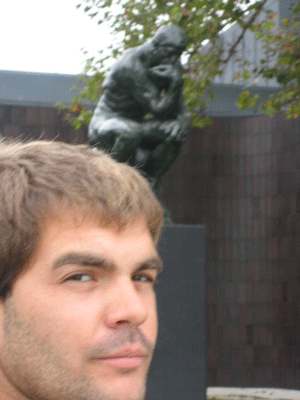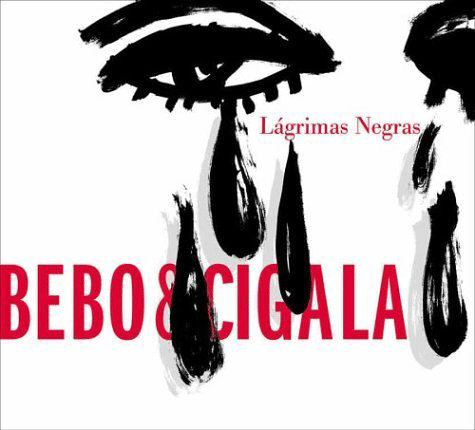January 28, 2006
Admin/MailCall/Alberto

Alberto sent an email to say hello:
he intentado poner un comentario en tu web y no he podido o no he sabido hacerlo, asi que te lo digo por mail,?Alberto!
me encantan las pinturas nuevas, y tengo que decirte que hace unos dias que me miro la de color verde, me la miro y me la vuelvo a mirar y cada vez me gusta mas, es realmente increible.
queria decirtelo porque realmente esa pintura me ha enamorado.
espero que stephanie este mejor, saludos de vuestro amigo
alberto.
Perdoname, pero mi comentarios es roto ahora. Nececito un specialista de red y ordenadors para reparar mi blog en la proxima oportunidad. Hasta luego, tengo este "Admin" (administrador) substituir la func?ona do los comentoarios.
Muchicimos gracias para su observac?ones generosa. Pesar mi realizaciones, tengo ganas para alcansar nivels nuevas. Ultimamente, satisfac?on es fugitivo siemre.
El salud de Stefani esta en salud mejor cada dia. El dolor de therapia fisico es una buena cosa en este situac?on. Ella digas hola con afecto.
?Hasta el verano proximo!
When Alberto came along with us to LA as Stephanie and I settled back into our lives here, Alberto and I were hard at work on the studio. I really put the lad thru the paces, hoping all the while that the experience of the ChinaTown artworld would be uniquely educational for him as a young artist. It was hard, dirty, sometimes brutally rough work. As we built, we usually played music and one of Alberto's CD's was L?grimas Negras. "La Bien Paga" is my favorite song in the album. How wonderful it is.

When I like a song, I play it repeatedly, an immersion that borders the neurotic. It's easy for me to spend days to weeks looped into the depths of a tune. Lucky for me that Alberto didn't mind. He often sang along, in his Castelano, his accent sounding great to my ears. Alberto told me that La Bien Paga was created in one fell swoop, that at the end of the song, Bebo pronounced the first take was to be the last. From the BBC:
Some might say Bebo's loosely wandering solo on "La Bien Pag?" loses the plot a little. Others would say that's the whole point - this is music to get absolutely lost in.
The core of the album was recorded in the space of a few days, which is the way most great records seem to be made.
Alberto felt compelled to tell me of the incindiery nature of the lyrics. The song concerns a man who, after having had perhaps a deep (love?) relationship with a prostitute, tries to recover anonymity by telling her that she was "...well paid...":
LA BIEN PAGA
(R. Perell? / J. Mostazo)
Raphael (Spain)
NA TE DEBO
NA TE PIDO
ME VOY DE TU VERA, OLVIDAME YA
QUE HE PAGAO CON ORO TUS CARNES MORENAS
NO MALDIGAS, PAYA, QUE ESTAMOS EN PAZNO TE QUIERO
NO ME QUIERAS
SI TO ME LO DISTE, YO NA TE PEDI
NO ME ECHES EN CARA QUE TO LO PERDISTE
TAMBIEN A TU VERA YO TO LO PERDIBIEN PAGA
SI TU EREES LA BIEN PAGA
PORQUE TUS BESOS COMPRE
Y A MI TE SUPISTE DAR
POR UN PU?AO DE PARNE
BIEN PAGA, BIEN PAGA
BIEN PAGA FUISTE, MUJERNO TE ENGA?O
NA TE PIDO
QUIERO A OTRA
NO CREAS POR ESO QUE TE TRAICIONE
NO CAYO EN MIS BRAZOS
ME DIO SOLO UN BESO
EL UNICO BESO QUE YO NO PAGUE
NA ME LLEVO
ENTRE ESAS PAREDES DEJO SEPULTAS
PENAS Y ALEGRIAS, QUE TE DOY Y ME DISTE
Y ESAS JOYAS QUE AHORA PA' OTRO LUCIRAS
Beautiful music with brutal content. Alberto would say, shaking his head: "Muy machista.". Yes, our P.C. (albeit thought controlled) world is a million miles away from the times that produced that song. Cigala's Flamenco voice rasps the pain while Bebe's fingers ruminate on the piano keys with the weight of his years.
***
The other day, I visited X (he's not ready for full exposure yet) in his secret studio as he was approaching his twentieth painting. He is now in the process of regenerating a painter's muscle, a first love in the artworld. He had been achieving many feats and deeds since grad school and now it was time to paint. X was having a hard time with that night's work, a small canvas that was nothing but trouble. After floating on the grace that comes at the honeymoon beginning of a new endevour -this period lasting several canvases- he finally began to sputter.
He was not a happy guy that night.
We talked about it over drinks at Hop Louie. X tried to find a name for his pain: "I don't want to struggle over a painting. It's not right to feel this way. Every touch is wrong, every act misses the mark. All my other paitings were smooth. They flowed. But today is different. This isn't right. I don't want to paint this way."
It might be worth noting that he was going through a tough break up at the time. No doubt this colored his experience in the studio. The woman he had recently proposed to had changed her mind as if inexplicably flipping a switch. One moment, they were furnishing a new house and the next, they were separating their possessions. For him, this came out of nowhere and no appeal was possible, talking wouldn't work. It was almost as if she had told him: "You were well paid."
Terse.
Brutal.
I listened to him as we drained our beers but I had reservations. Sure, it would be nice if every session in the studio was pure flow. I want that. I paint for that. But there are different qualities of flow. And sometimes one particular quality seems like no-flow, un-smooth, a damnable struggle. In my studio, I have to stay there until the flow resumes. If I walk away, it's as if you start all over again, back to square one. It's like I have to generate a charge in my head like a electrical capacitor... relent and and the charge dissapates into the ether. So I stay in place and bear down. I look for that break that might open the dam. Persist. My old friend Troy once said that it was like fishing. You have to be there, lines wet. Go home and you return with no fish for dinner.
I guess my folks were right when they said I was stubborn.
Moreover, the singularity of focus on the 24/7 masterwork is important but ultimately illusory. Yes, we should be trying to hit home runs with every canvas... but we are human after all. We reach for the stars because we are made in G-d's image. But are feet are planted in the dust that we will ultimately return to. This is because --well, (I guess I have to spell it out, a small fact that we tend to forget)-- we are mortal. Each painting fits into a corpus of work that describes an arc and a kind of holographic-like property of fragment-to-image whole:
...if a hologram is broken in half each half can still be used, on its own, to reproduce the whole image. And if each half is broken into quarters, all four quarters can still be used, on their own, to reproduce the whole image. And so on with practically no theoretical limit. All that happens is that every fragmentation simply reduces the clarity of the image.
Every piece of work created by an artist is a holographic fragment of an oeuvre. This thought came to me as I once considered the early work of artists like Rothko or Pollock or Lasker. Their early works looked nasty to me. Jejune. Not so good... like most artists' work do when they are young. And then a funny thing happens: once their "signature work" is produced, all of their previous work is seen in a different light, back-validated. You can see a glimmer of their future greatness in their early work. What once was weakness were really seeds of a future strength, an immanent original voice.
Another kind of grace, that is.
So, shoot for the moon. Push yourself hard. Look for grace, for the state of flow and the redemption that comes with creative fulfillment. Someday, may we all create that one-session masterpiece when all the planets align and we find ourselves in the company of greatness, with our creative powers dilated and oozing from synapse and pore. And should you be so lucky, all of your previous work might be reconsidered in the new light of the breakthrough master work. A special kind of redemption, artist style.
Until then, don't beat yourself up too hard for those off days in the studio. You're probably doing better than you feel you are doing... if you keep it up for the rest of your life.
Posted by Dennis at January 28, 2006 11:23 PM
Leave a comment